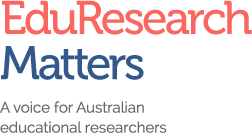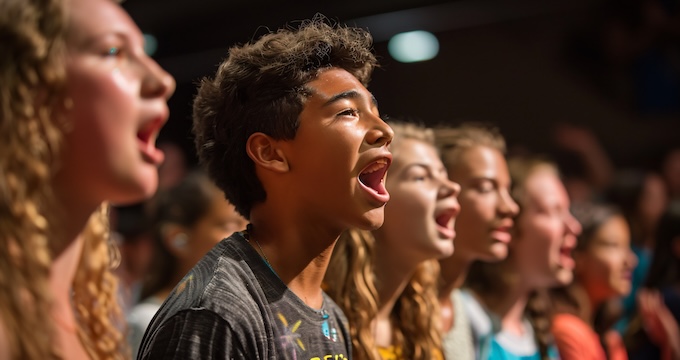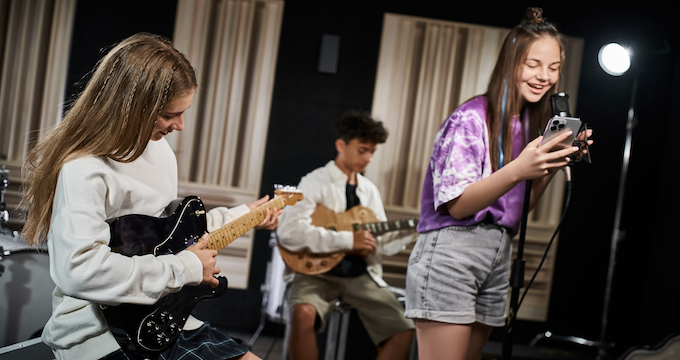Following on from our previous piece, we explore the necessity for genuine evidence-based education practice to guide teachers’ work.
What is evidence-based practice in education, really?
By the early 2000s, the medical model had evolved from Sackett’s original concept. New frameworks appeared integrating the patient’s values, preferences, and circumstances and the clinical context, with research evidence and practitioner expertise. Through this evolution, evidence-based practice became an individualised process of decision-making. It relied on professional reflection, situational awareness, and mutual understanding between doctor and patient.
It was never designed as a universal prescription, but as a guide for action within the complexities of human care.
Evidence-based practice in education didn’t emerge through a tradition of reflective professional judgement, as it did in medicine. Instead, it was imported through policy mechanisms, often driven by governments seeking scalable solutions to perceived educational problems.
In Australia, these “solutions” are provided by the Australian Education Research Organisation (AERO). Agencies such as the EPPI-Centre (UK), the EdCan Network (Canada), and the Institute of Education Sciences (USA) serve similar purposes. They promote models of evidence use that emphasise generalisability and scalability at the expense of teacher expertise and local context.
Teachers are not invited to interpret evidence, only to receive it
In these systems, evidence-based practice becomes something done to teachers, not by them.
The clinician making a judgement for and with a patient is replaced by a teacher required to implement a set of strategies proven “to work” in controlled trial. That’s regardless of the student, classroom, or community. The message is clear: teachers are not invited to interpret evidence, only to receive it.
This pattern of decontextualised, policy-driven “evidence use” is not new. Others have rightly criticised it. In recent posts, authors such as Dean Ashenden, Nicole Brunker, and Nicole Mockler highlight the narrowing of what counts as “evidence,” the sidelining of teacher expertise, and the ideological function of “what works” discourse in Australian education reform. These are essential critiques.
Our aim here is to build on and deepen that conversation. We do so by revisiting the roots of evidence-based practice in its original domain: medicine. By returning to David Sackett’s foundational model, we show just how far education has drifted from evidence-based practice as a reflective, individualised and context-sensitive endeavour.
A fundamental departure
We argue that what AERO presents as evidence-based practice is not simply reductive. By removing these crucial elements, it represents a fundamental departure from the professional logic that EBP was built on.
This departure matters. It shapes how teachers are trained, how their practice is judged, and how their professional expertise is valued, or ignored. It also has deep implications for student learning, particularly in a system where teachers are not supported to think critically with and about evidence. They are instead expected to implement pre-approved solutions that exclude uncertainty, discourage inquiry. These ‘solutions’ bypass the relational dynamics that are central to teaching. This is in a system that is supposed to teach critical and creative thinking in every Australian child.
We write to reclaim it as a tradition of reflective practice, professional judgement, and pedagogical care.
No problem solving for teachers or students
In the foreword to the fourth edition of their book Evidence-based Practice Across the Health Professions published just last year, Australian EBP experts Hoffman, Bennett, and Del Mar cover the current understanding of the medical model of EBP (MEBP). They define it as a “problem based approach where research evidence is used to assist in clinical decision making”.
This remains consistent with what David Sackett understood when he first articulated evidence-based medicine. Professionals make decisions in uncertain, complex, and relational contexts. They draw on research, experience, and the needs of those they serve.
We argue that this conception of EBP is most suitable for translation into education because both teaching and learning are, at their core, problem-solving practices. Instead we are left with an education ideology that removes the practice-as/is-problem-solving and learning-as/is-problem-solving foundation of Sackett’s concept of evidence-based practice for teachers and students.
A core competency
We call for problem solving to be a core competency for teachers, just as it is for practitioners in MEBP where practice is underpinned by what Hoffman et al call an “attitude of inquiry”. Unlike AERO’s “this works – do it” mentality, the process of MEBP acknowledges that “uncertainty is an inherent part of health care”, and begins with the practitioner identifying a problem in their own context and going to the evidence base with a question. We advocate for an evidence-based practice in education that embraces the uncertainty of our profession. We propose an adaptation of MEBP’s “The five A’s” as a frame for guiding educators to engage in evidence-based practice:
The Five A’s of EBP for Education
- Ask a question – convert your information needs into an answerable pedagogical question
- Access the information – find the best evidence to answer your pedagogical question
- Appraise the articles found – critically appraise the evidence for its validity (risk of bias), impact and applicability in your unique context, with your specific students
- Apply the information – integrate the evidence with classroom expertise; the students’ values, preferences and circumstances; and information from your classroom context.
- Audit – evaluate the effectiveness and efficiency with which steps 1–4 were carried out, and think about ways to improve your performance of them next time.
Embracing a framework like the Five A’s for EBP in education would not be an easy change.
Time, resources and professional learning
Teachers would need time, resources and professional learning to develop the research literacy to engage in this kind of professional practice. However, it holds the potential for educators to take back the ownership of their profession, reclaiming/reframing teaching as a tradition of reflective practice, professional judgement, and pedagogical care.
If teachers, researchers and educational leaders are respected as the professionals they are, then there is potential to correct the current trajectory of evidence-based practice in education and its undermining of the very heart of effective teaching, empowering teachers as problem-finding, problem-solving, critically reflective teacher-learners committed to individual student needs, rather than as mere implementers of mandates.

Brad Fuller is an educator and researcher with over 35 years of experience in music education and curriculum innovation. He is associate lecturer in music education at the Sydney Conservatorium of Music, University of Sydney. James Humberstone is a senior lecturer in music education at the Sydney Conservatorium of Music, The University of Sydney. He specialises in teaching music pedagogies, technology in music education, and musical creativities. Rachael Dwyer is a lecturer in curriculum and pedagogy at the University of the Sunshine Coast. Her scholarship is focused on creating social change, through decolonizing, arts-based approaches to teaching, advocacy and research.












